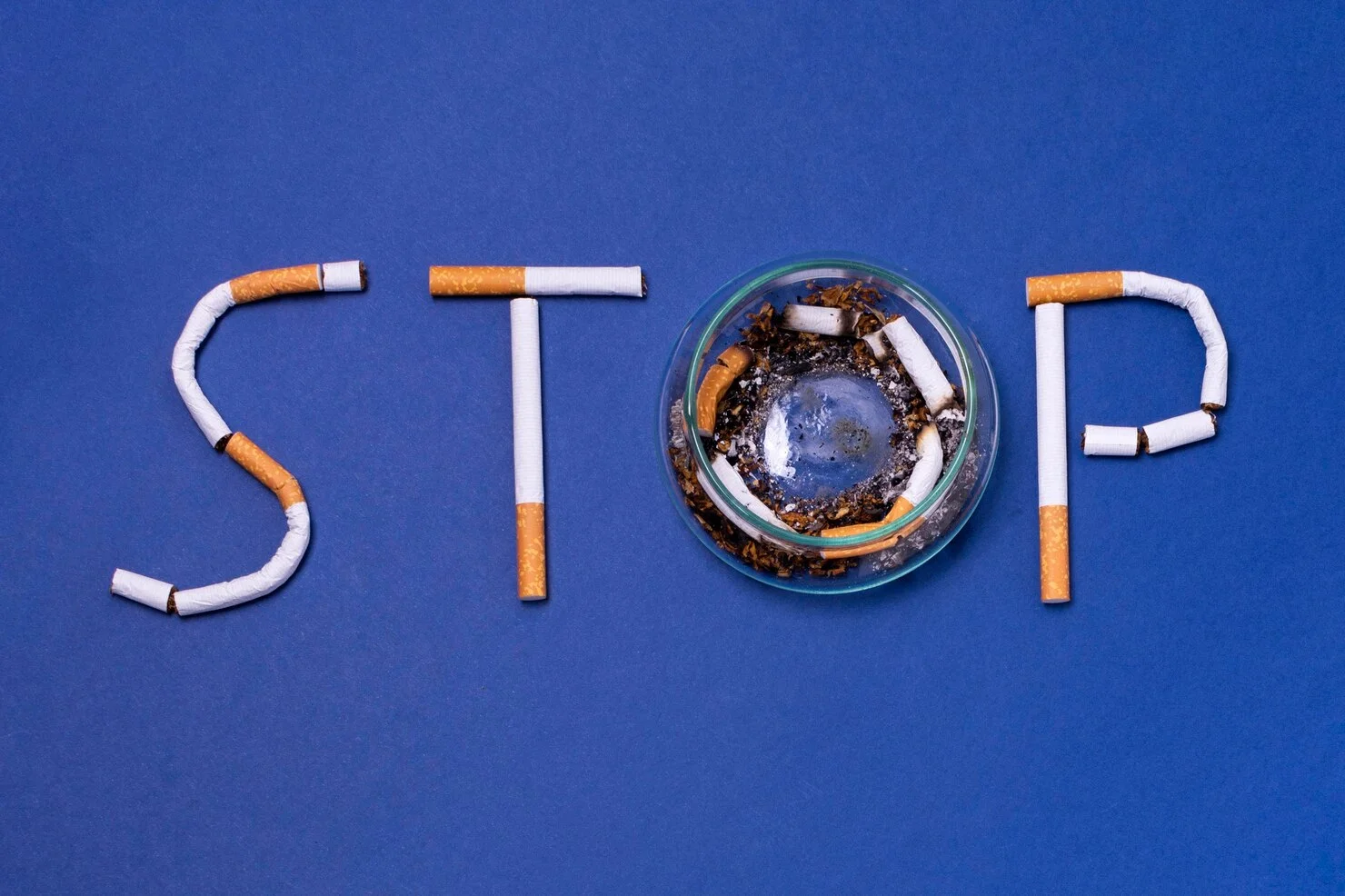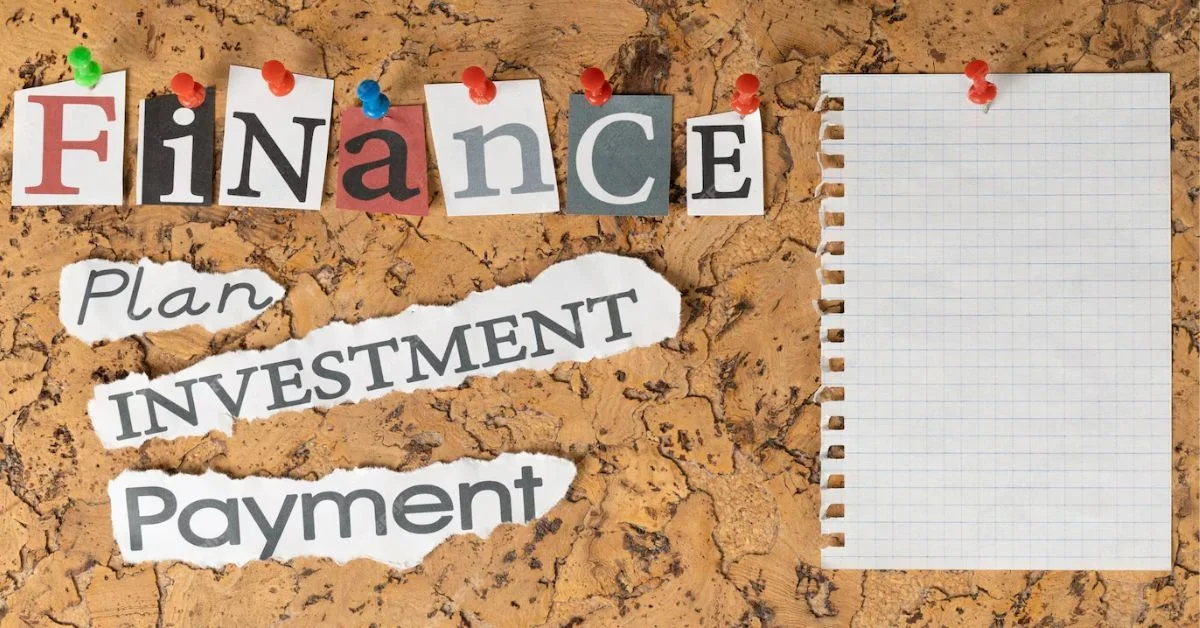HEALTH
12 Common Triggers for Addiction and How to Avoid Them

Understanding and avoiding common triggers is essential for maintaining sobriety during addiction recovery. Triggers can lead to cravings and relapse if not managed effectively.
1. Stress
Stress is one of the most common triggers for addiction. High levels of stress can lead to cravings as individuals seek relief through substance use.
How to Avoid It:
Practice stress management techniques such as mindfulness, deep breathing exercises, and regular physical activity. Prioritize self-care and seek support from friends, family, or a therapist to help manage stress effectively.
2. Social Pressure
Social situations where others are using substances can be challenging for someone in recovery. Peer pressure can tempt you to join in and relapse.
How to Avoid It:
Surround yourself with supportive, sober friends. Politely decline invitations to events where substance use will be present. Plan alternative activities with friends who respect your commitment to sobriety.
3. Emotional Distress
Feelings of sadness, anger, or loneliness can trigger cravings for substances as a way to cope with negative emotions.
How to Avoid It:
Develop healthy coping mechanisms such as journaling, talking to a therapist, or engaging in a hobby. Build a strong support network to lean on during times of emotional distress.
4. Environmental Cues
Certain places, people, or situations associated with past substance use can trigger cravings.
How to Avoid It:
Identify and avoid high-risk environments that remind you of your substance use. Create new, positive associations by spending time in supportive, sober settings.
5. Celebrations and Holidays
Special occasions often involve substance use, which can be a trigger for those in recovery.
How to Avoid It:
Plan ahead for celebrations and holidays by bringing your own non-alcoholic beverages and having an exit strategy if you feel uncomfortable. Attend sober events or host your own celebrations without substances.
6. Fatigue
Being overly tired can lower your defenses and make it harder to resist cravings.
How to Avoid It:
Prioritize getting enough sleep and establish a regular sleep routine. Listen to your body and rest when needed to maintain physical and mental health.
7. Boredom
Idle time and lack of stimulation can lead to thoughts of substance use as a way to pass the time.
How to Avoid It:
Stay busy with activities that interest you, such as hobbies, exercise, or volunteering. Create a daily schedule to keep yourself engaged and productive.
8. Relationship Problems
Conflict and tension in relationships can trigger emotional distress and cravings.
How to Avoid It:
Practice open communication and seek therapy to address relationship issues. Surround yourself with supportive people who respect your recovery journey.
9. Physical Pain
Chronic pain or discomfort can lead to the temptation to use substances for relief.
How to Avoid It:
Work with healthcare professionals to manage pain through non-addictive medications and alternative therapies such as physical therapy, acupuncture, or mindfulness.
10. Financial Stress
Worrying about money can create significant stress, leading to cravings.
How to Avoid It:
Create a budget and seek financial advice to manage your finances effectively. Focus on building financial stability and seek support from friends, family, or financial counselors.
11. Celebrating Milestones
Ironically, achieving significant milestones in recovery can sometimes trigger thoughts of “rewarding” yourself with substances.
How to Avoid It:
Celebrate milestones in healthy, substance-free ways. Treat yourself to a special outing, a new hobby, or a meaningful experience that reinforces your commitment to sobriety.
12. Complacency
Becoming too comfortable in your recovery can lead to overconfidence and a lapse in vigilance, increasing the risk of relapse.
How to Avoid It:
Stay committed to your recovery routine and continue attending support groups and therapy sessions. Regularly review your goals and progress to stay focused on your sobriety.
Strategies for Managing Triggers
While avoiding triggers entirely may not always be possible, having strategies in place can help you manage them effectively. Here are some additional tips for managing triggers:
1. Develop a Relapse Prevention Plan
Create a detailed plan that outlines how you will handle triggers and cravings. Include specific strategies, coping mechanisms, and emergency contacts. Having a plan in place provides a sense of security and readiness.
2. Practice Mindfulness
Mindfulness involves staying present and aware of your thoughts and feelings without judgment. Practicing mindfulness can help you recognize triggers early and respond to them in a healthy way.
3. Build a Support Network
Surround yourself with supportive friends, family, and peers who understand your journey and can provide encouragement and accountability. Regularly attend support group meetings to stay connected and motivated.
4. Engage in Healthy Activities
Regular exercise, hobbies, and other positive activities can provide a healthy distraction from cravings. Engaging in activities that you enjoy helps build a fulfilling, sober lifestyle.
5. Seek Professional Help
Therapists and counselors can provide valuable support and guidance in managing triggers. Cognitive-behavioral therapy (CBT) and other therapeutic approaches can help you develop effective coping strategies.
6. Reflect and Adjust
Regularly reflect on your progress and the effectiveness of your strategies. Adjust your plan as needed based on your experiences and challenges. Continuous self-awareness and adaptability are key to maintaining sobriety.
7. Stay Educated
Educate yourself about addiction and recovery. Understanding the science behind addiction and learning about different recovery strategies can empower you to make informed decisions about your health.
8. Practice Self-Care
Prioritize self-care to maintain your physical and mental health. Taking care of yourself ensures you have the energy and resilience to handle triggers effectively.
9. Celebrate Progress
Acknowledge and celebrate your achievements, no matter how small. Recognizing your progress reinforces positive behavior and motivates you to continue your recovery journey.
FOOD & DRINKS
What are the Health Benefits of Adding Blue Swimmer Crabs to Your Diet?

More than a mere delicacy, blue swimmer crabs also offer a range of health benefits that make it such a valuable addition to your diet. Packed with essential nutrients and low in calories, a blue swimmer crab can contribute to overall well-being and support various aspects of health. Let’s explore the health benefits of adding blue swimmer crab to your diet.
Rich Source of Protein
If you’re an active person, here’s a good reason to learn how to cook blue swimmer crab. This seafood option is an excellent source of high-quality protein, essential for building and repairing tissues in the body. Protein is also important for supporting muscle growth, maintaining healthy hair and nails and keeping you feeling full and satisfied after meals.
Low in Fat and Calories
Despite its rich taste and texture, blue swimmer crab is relatively low in fat and calories, making it a healthy choice for those watching their weight or looking to maintain a balanced diet. By incorporating blue swimmer crab into your meals, you can enjoy a satisfying and flavourful dish without worrying about excessive calorie intake.
High in Vitamins and Minerals
Blue swimmer crab is packed with essential vitamins and minerals that are vital for overall health and well-being. It’s particularly rich in Vitamin B12, which supports nerve function and helps prevent anaemia.
In addition, blue swimmer crabs contain significant amounts of Vitamin C, Vitamin E, magnesium and selenium, all of which play important roles in various bodily functions.
Omega-3 Fatty Acids
Like many seafood, blue swimmer crab is a good source of omega-3 fatty acids, which are known for their heart-healthy benefits. Omega 3s help reduce inflammation in the body, lower triglyceride levels and support cardiovascular health. Incorporating blue swimmer crab into your diet can help reduce the risk of heart disease and improve overall heart function.
Promotes Bone Health
Blue swimmer crab is rich in minerals like calcium, phosphorus and zinc, which are all essential for maintaining strong and healthy bones. These minerals help support bone density, prevent osteoporosis and reduce the risk of fractures and bone-related disorders, especially as you get older.
Supports Immune Function
The vitamins and minerals found in blue swimmer crabs, such as Vitamin C, Vitamin E and selenium, play important roles in supporting immune function and helping the body fight off infections and diseases. By incorporating blue swimmer crabs into your diet, you can give your immune system a natural boost and stay healthy year-round.
Blue Swimmer Crab: Sumptuous and Nutritious
Still haven’t tried blue swimmer crabs? It’s time to incorporate them in your diet and reap a range of benefits from getting essential nutrients to enhancing your overall well-being. Whether you enjoy it steamed, grilled or in a delicious seafood pasta, this delicious seafood option is a versatile and nutritious addition to any meal. So, the next time you’re planning your menu, consider adding blue swimmer crab for a tasty and healthful dining experience.
HEALTH
The Surprising Benefits of Weight Loss Peptides You Need to Know

Peptides have long been heralded as the unsung heroes of biological processes. It plays important roles in everything from inflammatory responses to cell signaling.
However, their recent ascent into the limelight in the field of weight management may surprise many. Today, we’re taking a deep dive into the realm of weight loss peptides.
We’ll explore how these compounds promise a path to a healthier, more vibrant life. So, read on!
Increased Fat Loss
The primary mechanism of action behind weight loss peptides is their ability to increase fat loss. These compounds work by mimicking the effects of our body’s natural hormones. This includes growth hormone and insulin-like growth factor-1 (IGF-1).
By activating these pathways, they can promote lipolysis (the breakdown of fats) and inhibit lipogenesis (the creation of new fats). As a result, the body can burn fat more efficiently. It can prevent the storage of excess fat.
Additionally, peptides, particularly semaglutide peptides, may also increase metabolism and energy expenditure. This can lead to even greater fat loss.
Enhanced Metabolic Rate
Metabolism refers to the chemical reactions that occur in our body to maintain life. A faster metabolic rate means our body is burning more calories, even at rest.
Weight loss peptides have been found to stimulate metabolism by increasing thermogenesis. This is the production of heat in the body. This process requires energy and therefore burns more calories.
Moreover, certain peptides can also improve insulin sensitivity and glucose metabolism. This can benefit those with conditions like obesity or diabetes.
Preservation of Lean Muscle Mass
One of the biggest challenges in weight loss is maintaining muscle mass while shedding fat. This is where peptides can offer a significant advantage.
Certain peptides, such as growth hormone-releasing peptides (GHRPs), can stimulate the production of growth hormone and promote muscle building. This can help individuals preserve their lean muscle mass while losing fat. This can result in a more toned and defined physique.
Appetite Regulation
Weight loss peptides can also impact our appetite and food intake. Some peptides have been found to reduce hunger and increase satiety. This can help individuals stick to their weight loss goals by preventing overeating.
Moreover, by regulating the levels of hormones involved in appetite, peptides can also help individuals make healthier food choices and resist cravings for unhealthy foods. This can lead to long-term weight management success.
Improved Energy and Exercise Performance
The benefits of peptides for body weight loss treatment extend beyond just the physical changes. By increasing energy and endurance, these compounds can also improve exercise performance.
Some peptides have been found to enhance oxygen delivery and nutrient uptake in the muscles. This allows individuals to train harder and longer. This can result in more calories burned during workouts and ultimately contribute to weight loss.
As long as you get your supplements from the right provider like Top Semaglutide Provider, these compounds can be safe and effective in improving weight loss outcomes.
Discover the Surprising Benefits of Weight Loss Peptides
Weight loss peptides offer a multitude of benefits. Not only do they increase fat loss and improve metabolism. They can also preserve lean muscle mass, regulate appetite, and enhance exercise performance.
With these surprising advantages in mind, it’s no wonder that weight loss peptides are gaining recognition as powerful tools for weight management. Keep in mind that it is important to consult a healthcare professional before starting any new supplement regimen.
Should you wish to read more, visit our blog. We’ve got more topics!
HEALTH
Transitional Living’s Crucial Role in the Continuum of Addiction Recovery

In the process of transitioning from rigorous inpatient treatment for drug misuse to the independence of sober living situations, transitional living emerges as an essential bridge. It encompasses a one-of-a-kind strategy within the larger arena of addiction treatment programs, providing a structured recovery pathway for persons who are struggling with the difficulties associated with alcoholism or drug abuse.
The path of many people who are battling addiction often starts with a moment of confrontation and revelation, which is typically accomplished via the use of an intervention.
During these types of interventions, members of the client’s family and other loved ones get together to convey a unified front, asking the individual to accept their addiction and think about the many treatment alternatives available to them.
Note that this defining moment highlights the gravity of their circumstance, which is frequently characterized by the threat of broken relationships in the event that they refuse therapy.
Many people find themselves at a crossroads after completing the early rounds of therapy because they are unable to continue their stay in residential institutions due to budgetary concerns.
Transitional living is an alternative that is easily accessible and provides a continuum of care at a fraction of the expense of traditional residential care. By offering a framework that is both organized and flexible, this setting assists patients in consolidating the gains they have achieved during previous periods of treatment. It also provides a framework that is adapted to the unique requirements of recovery, including gender-specific activities.
Individual bedrooms are typically provided in transitional living facilities, which have a capacity restriction to ensure that each resident receives the individualized attention they require. This strikes a compromise between community assistance and personal privacy.
In comparison to more conventional forms of treatment, this environment is distinguished by the fact that it provides a larger degree of autonomy and responsibility. Participants are encouraged to participate in community service, look for jobs, and gradually reintegrate into society in order to cultivate a feeling of purpose and belonging in their lives.
The 12-step recovery paradigm is a fundamental component of transitional living programs. These programs need participants to maintain consistent involvement with support networks such as Alcoholics Anonymous or Narcotics Anonymous, and they also require daily interactions with sponsors.
The provision of travel and housing guarantees that the individual is able to concentrate on rehabilitation without being distracted by outside influences, while random drug screens reinforce accountability.
In addition, transitional living goes beyond only providing a place to sleep; it also incorporates educational programs, support groups, and tactics to avoid relapse into its overall structure. The aims of these components are similar to those of more intense treatment settings, and they are designed to help individuals learn essential living and coping skills.
Counseling sessions within these programs contain a wide range of therapeutic modalities, including individual therapy, family counseling, and marriage therapy, despite the fact that transitional care is less restrictive than other types of care. These sessions are led by qualified experts.
Furthermore, transitional living programs recognize the significant role that a supportive community plays in the rehabilitation process, and as a result, they provide a variety of support groups for families. Not only do these free tools offer essential assistance to individuals who are in recovery, but they also offer help to their families, which has the effect of aiding healing and understanding for everyone concerned.
The spectrum of addiction treatment programs includes transitional living, which acts as a vital component. Transitional living provides a balanced combination of structure, support, and freedom and serves as an essential component. Individuals are empowered with the resources and support necessary for a successful transition back into society when they participate in transitional living programs. These programs play a vital role in leading individuals toward long-term sobriety by creating an atmosphere that is favorable to continuous growth.

 ENTERTAINMENT4 days ago
ENTERTAINMENT4 days agoExploring the Kristen Archives: A Treasure Trove of Erotica and More

 ENTERTAINMENT1 day ago
ENTERTAINMENT1 day agoKiss KH: The Streaming Platform Redefining Digital Engagement and Cultural Currents

 EDUCATION1 day ago
EDUCATION1 day agoLingrohub Platform: A Complete Student Access Guide

 LIFESTYLE4 months ago
LIFESTYLE4 months agoThe Disciplinary Wives Club: Spanking for Love, Not Punishment

 TECHNOLOGY24 hours ago
TECHNOLOGY24 hours agoCasibom: The Digital Alchemy Reshaping Systems, Society, and Self

 TECHNOLOGY23 hours ago
TECHNOLOGY23 hours agoSecuring Your Online Presence: The Ultimate Guide to Buying an SSL Certificate

 BUSINESS23 hours ago
BUSINESS23 hours agoDiversifying Your Portfolio: The Key to Successful Investing in Portland, Oregon

 LIFESTYLE23 hours ago
LIFESTYLE23 hours agoTips for Prolonging the Lifespan of Truck Roll-Up Door Rollers










